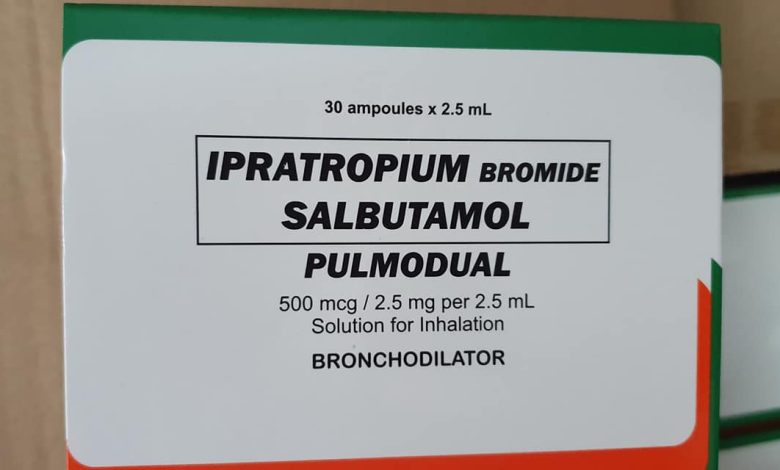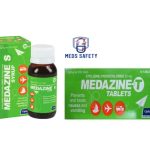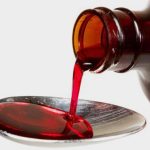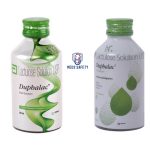Pulmodual: Uses, Benefits, Dosage, Side Effects, Interactions

What is Pulmodual used for?
Pulmodual is a medication specifically formulated to provide relief for individuals suffering from reversible bronchospasm. It combines two active ingredients, Ipratropium bromide (as monohydrate) and Salbutamol (as sulfate), in each dose. This combination of medications works synergistically to effectively target and alleviate the symptoms associated with various respiratory conditions, such as asthma, bronchitis, emphysema, and bronchiectasis.
Ipratropium bromide, in its monohydrate form, acts as an anticholinergic agent. It works by inhibiting the action of acetylcholine, a neurotransmitter responsible for contracting the smooth muscles lining the bronchioles. By blocking these specific receptors, Ipratropium bromide helps to relax the smooth muscles, resulting in bronchodilation. This widening of the airways allows for improved airflow and eases the breathing difficulties caused by bronchospasm.
Salbutamol, in its sulfate form, belongs to the class of medications known as selective beta-2 adrenergic agonists. It acts as a bronchodilator by specifically targeting the beta-2 adrenergic receptors found in the bronchial smooth muscles. When Salbutamol binds to these receptors, it triggers a cascade of intracellular events that lead to the relaxation of the bronchial smooth muscles. This relaxation further widens the airways, facilitating the passage of air and reducing the resistance encountered during breathing.
Together, the combination of Ipratropium bromide and Salbutamol in Pulmodual offers a comprehensive approach to managing respiratory conditions characterized by reversible bronchospasm. By addressing the underlying cause of bronchoconstriction and promoting bronchodilation, Pulmodual helps individuals breathe more easily, alleviates symptoms such as wheezing, shortness of breath, and chest tightness, and improves overall respiratory function.
It is important to note that Pulmodual should only be used as directed by a healthcare professional, and individuals should carefully follow the prescribed dosage instructions. Additionally, it is advisable to consult with a healthcare provider for a proper diagnosis and to discuss the suitability of Pulmodual as a treatment option for specific respiratory conditions.
How to take Pulmodual
Pulmodual is available in a solution for inhalation, and the following dosage instructions should be followed:
1. Adult (Including Elderly Patients) and Adolescents over 12 years:
• Take one ampoule (2.5 mL) of Pulmodual every 6 to 8 hours.
• Prepare the nebulizer for use.
• Remove the ampoule from the labeled strip by twisting and pulling.
• Hold the ampoule upright and twist off the cap.
• Transfer the contents of the solution into the nebulizer reservoir.
• Use the nebulizer according to the instructions provided by the manufacturer.
• After use, discard any solution left in the reservoir and thoroughly clean the nebulizer.
• It is important to use the content of the ampoule immediately after opening since the Pulmodual solution contains no preservatives.
• A new ampoule should be used for each administration to avoid microbial contamination.
• Discard any partly used, opened, or damaged ampoules.
• Pulmodual solution for inhalation should not be mixed with other drugs in the same nebulizer.
2. For the Treatment of Acute Attacks:
• In most cases, one ampoule (2.5 mL) of Pulmodual is sufficient for prompt symptom relief.
• However, in severe cases where symptoms persist after using one ampoule, two ampoules (5 mL) may be required.
• Follow the same administration instructions as mentioned above.
3. Children 2 to 12 years:
• The recommended dosage for children is 3 drops/kg/dose, with a maximum dose of 2.5 mg of salbutamol.
• Administer the appropriate number of drops based on the child’s weight, every 6 to 8 hours.
• Follow the same administration instructions as mentioned above for preparing and using the nebulizer.
It is essential to strictly adhere to the prescribed dosage and administration instructions provided by a healthcare professional. If there are any uncertainties or questions regarding the appropriate use of Pulmodual, it is recommended to consult with a healthcare provider or pharmacist for clarification.
Pregnancy & Lactation
Pulmodual falls under Pregnancy Category C, and its safety during pregnancy has not been established. The use of Ipratropium bromide + Salbutamol (Pulmodual) during pregnancy should be considered only if the potential benefits outweigh the potential risks to the fetus. It is important to consult with a healthcare professional to assess the individual situation and make an informed decision.
During labor and delivery, the use of Ipratropium bromide + Salbutamol (Pulmodual) for the treatment of chronic obstructive pulmonary disease (COPD) should be limited to cases where the benefits clearly outweigh the risks. This caution is due to the possibility of beta-agonist medications interfering with uterine contractility.
Regarding nursing mothers, both Ipratropium bromide and Salbutamol components are excreted in human milk. Although lipid-insoluble quaternary bases can pass into breast milk, the extent to which Ipratropium bromide reaches the infant through inhalation as a nebulized solution is unlikely to be significant. However, caution should still be exercised when administering Pulmodual to a nursing mother, and healthcare providers should be consulted for guidance.
It is crucial to discuss any concerns or questions about the use of Pulmodual during pregnancy or while breastfeeding with a healthcare professional. They can provide personalized advice and weigh the potential risks and benefits based on the specific situation.
Side Effects of Pulmodual
The side effects of Pulmodual can include:
Common side effects:
• Dry mouth
• Nausea
• Constipation
• Headache
• Fine tremor (especially in the hands)
• Nervous tension
• Muscle cramps
• Palpitations
Other reported adverse effects:
• Tachycardia (rapid heartbeat)
• Atrial fibrillation (irregular heart rhythm)
• Arrhythmias (abnormal heart rhythms)
• Peripheral vasodilation (widening of blood vessels in the extremities)
• Disturbances of sleep and behavior
In addition, there have been reports of:
• Paradoxical bronchospasm (worsening of bronchospasm)
• Urticaria (hives)
• Angioedema (swelling of the deep layers of the skin)
• Hypotension (low blood pressure)
• Collapse
It’s important to note that not all individuals will experience these side effects, and the occurrence and severity of side effects can vary. If you experience any unusual or severe side effects, it is important to seek medical attention.
Interactions
Pulmodual can interact with several medications. Here are some notable drug interactions:
- Anticholinergic agents: Co-administration of other anticholinergic drugs should be avoided as it can cause an additive interaction when used together with Ipratropium bromide + Salbutamol.
- Beta-adrenergic agents: Caution is advised when combining Ipratropium bromide + Salbutamol with other sympathomimetic agents (such as other beta-agonists) due to the increased risk of adverse cardiovascular effects.
- Beta-receptor blocking agents: Beta-receptor blocking agents (also known as beta-blockers) and Salbutamol may inhibit each other’s effects. Caution should be exercised when using these medications together, particularly in patients with hyperreactive airways.
- Cardiac glycosides: Salbutamol may possibly reduce the plasma concentration of digoxin, a type of cardiac glycoside. Monitoring of digoxin levels may be necessary during co-administration with Ipratropium bromide + Salbutamol.
- Diuretics: There is an increased risk of hypokalemia (low potassium levels) when high doses of beta2 sympathomimetics (such as Salbutamol) are given together with diuretics, particularly loop or thiazide diuretics. Close monitoring of potassium levels is recommended in such cases.
- Monoamine oxidase inhibitors or tricyclic antidepressants: Ipratropium bromide + Salbutamol should be administered with extreme caution to patients treated with monoamine oxidase inhibitors (MAOIs) or tricyclic antidepressants or within two weeks of discontinuation of such agents. This is because the action of salbutamol sulfate on the cardiovascular system may be potentiated in these cases.
- Theophylline: There is an increased risk of hypokalemia when high doses of beta2 sympathomimetics (such as Salbutamol) are given together with theophylline. Close monitoring of potassium levels is recommended in such cases.
It’s important to inform your healthcare provider about all the medications you are taking, including prescription drugs, over-the-counter medications, and herbal supplements, to avoid any potential drug interactions. They can provide personalized advice and adjust your medication regimen if necessary.





